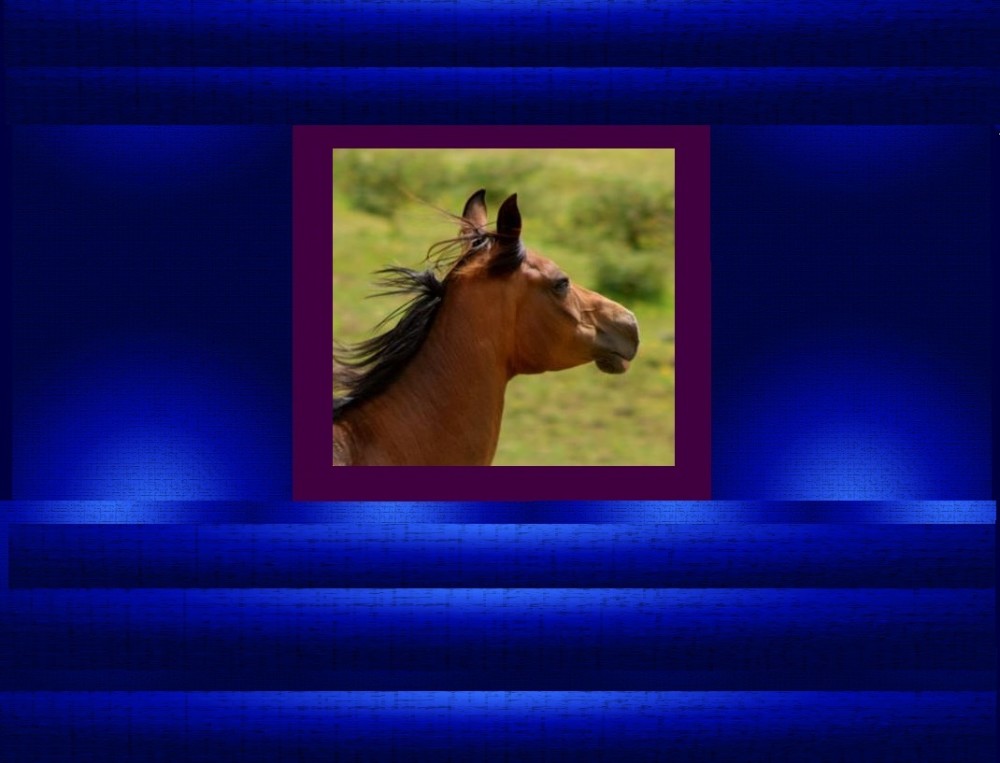Something I’ve found while training animals (both dogs and horses) is that individuals have a widely varying tolerance for repetition. One animal might patiently drill over a task again and again, while trying to do this with another individual causes anxiety and frustration.
To me it makes sense that animals, like humans, might have a natural tendency to learn better in some ways than others. There are lots of learning theories out there, but it has been observed that some people might learn better by performing a task themselves, while others might learn best by hearing how to do it or seeing it performed. Sometimes I’ve wondered if animals that respond well to clicker training might be more inclined to learn by auditory stimulation, while some that tolerate physical repetition might be kinetic learners. I could imagine that a human with a strong tendency for auditory learning would appreciate having a task verbalized to them rather than told to just keep trying it and doing it wrong again and again.
This might sound a little far fetched to you, but consider that horses use all of their senses as we do and the neuronal pathways may be more developed in certain areas than others. A horse hears things and reacts, sees things and reacts, and also responds physically to things and learns from the responses to all of these reactions. You can’t verbally explain what to do to a horse, but you can give an audible verbal (or clicker) affirmation such as “good girl,” when the horse chooses the right answer to your training question. You aren’t going to draw a horse a diagram of what to do, but you can give a horse visual cues that will assist with learning such as cones and poles on the ground.
One horse I rode seemed unable to learn where the appropriate take-off point for a jump was visually. No amount of adjusting the poles, etc. would help her figure it out. Finally, I added a verbal cue when she was supposed to take off, and almost immediately she figured out this timing that had eluded her.
 Not every horse is good at what he was intended for
Not every horse is good at what he was intended for
A recent study looked into the idea that 10,000 hours of practice made one an expert in a certain area. They researched chess players and musicians to see how much practicing affected their proficiency level. The data showed that two-thirds of the difference in performance was unrelated to practice. One chess player took only two years to become a grandmaster, while another only reached that level after 26 years.
It has been said that prodigies and autistic people both have intense focus and a high tolerance for repetition. These factors are linked to genetics and cause a tendency to practice more than other people.
It may be helpful when training animals to take these things into consideration: if the animal is genetically predisposed to tolerate practice, he may excel more than others. Yet it must be considered that most horses that truly excel in certain areas are probably genetically talented both physically and mentally with a natural prediliction for the task at hand.
In my personal experience: if a horse does not seem to enjoy drilling and repetition, then more drilling and repetition will not be helpful. Rather than trying to stubbornly put in your “10,000 hours” of practice, consider that this horse might learn in a different way. One horse I ride is a very kinetic learner. I tried going over and over certain exercises in an arena to teach her rhythm, balance and relaxation under saddle. In the end, what taught her the most was to leave the arena behind. The fast-paced decision making and quick changes in direction while doing “casual” riding on the trail translated into her finally gaining the ability to make perfect circles in the arena and to be connected through her body.
Ironically, it is often the horses that feel as if they might be unsafe to ride outside the arena due to balance and tempo issues that benefit the most by leaving the arena behind. The horses that seem more balanced and calm inside the arena are the ones that may be actually learning from the repetition and those are often the ones we take right outside because they seem more “advanced.”
It would be easiest if we could ask horses how they learn best and what disciplines they would be interested in learning. Instead, we have to observe and keep an open mind while considering if this particular horse is really going to be a rock star at jumping or endurance or if he dreams instead of puzzling his way through tricky trail obstacles.
I’ve read blogs by riders who are determined to make their horse into a grandmaster at…fill in the blank. A struggle ensues, and the story seems to end with either success (the horse was suited to the task!), getting a different horse (the horse was unsuited but the rider had his heart set on the goal), or changing to a different discipline the horse was actually able to do. Many of the riders seem to feel that the last outcome means they are a failure. The blog name changes or the posts dwindle off. Yet what is disappointing about a horse that is finally happy and succeeding instead of struggling and failing to get their rider’s approval? I have to feel good about someone who is flexible enough to change their ideals and goals to match what is best for their equine partner.



